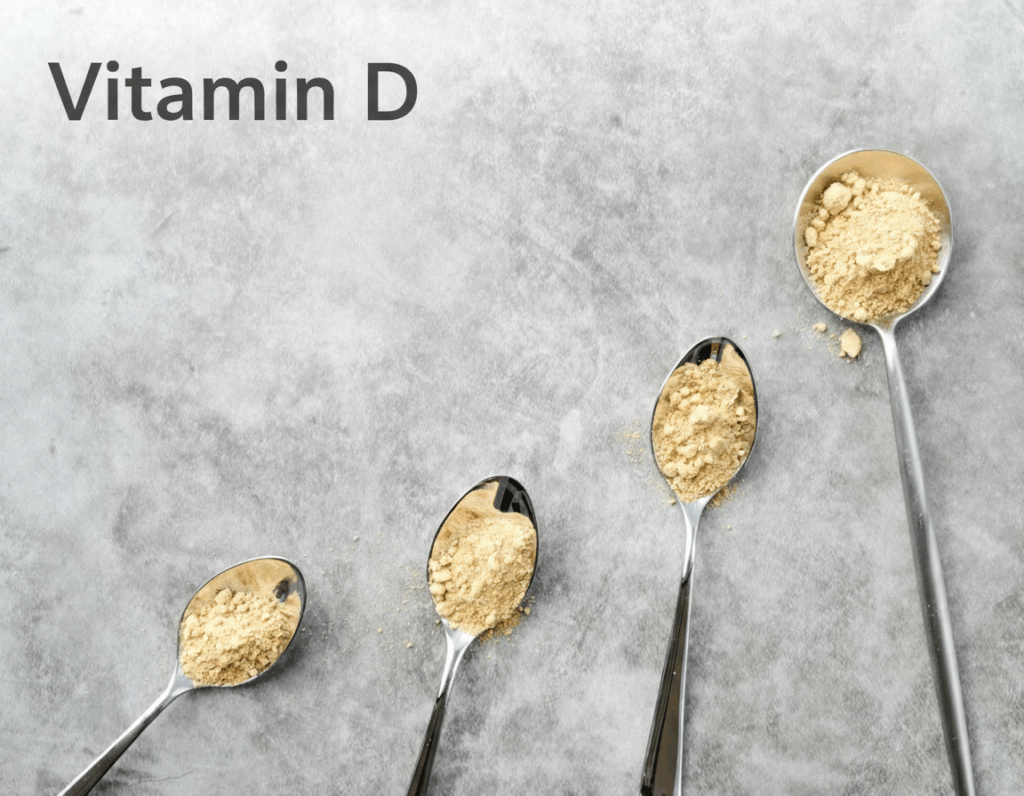Body. Mind. Spirit.

Why Vitamin D Matters — and Why Supplements Make Sense in the UK
Vitamin D often gets called the “sunshine vitamin,” because our skin makes it when exposed to ultraviolet B (UVB) rays from sunlight. But in many parts of the UK (especially during autumn and winter), there simply isn’t enough UVB entering the atmosphere to enable adequate vitamin D synthesis in the skin. (GOV.UK)
That means diet (which provides only modest amounts) and supplementation become essential for maintaining healthy vitamin D levels. Many people fall short — especially in the darker months. (PMC)
Public health bodies in the UK already recommend that adults and children over 4 years old consider taking a daily supplement of 10 micrograms (400 IU) of vitamin D from October to early March. (GOV.UK) Some groups—such as those with limited sun exposure, darker skin, or who cover up outdoors—are advised to consider supplementation year‑round. (GOV.UK)
The UK Winter Vitamin D Challenge: What the Data Shows
- A large UK Biobank analysis found that vitamin D deficiency (defined as 25(OH)D < 25 nmol/L) was much more common in winter (23.1 %) and spring than in summer and autumn. (PMC)
- In the winter, in an observational “Nutri‑D” study, 63.4 % of participants had insufficient vitamin D status (defined as < 50 nmol/L). (Frontiers)
- Other data suggests that about 5 % of UK adults have below-optimal vitamin D levels (below ~75 nmol/L) at some point. (Forth)
- Some media/informal sources cite figures such as “60 % of the UK population have insufficient vitamin D.” (Only Ojas has also posted such a claim on social media) (Instagram)
- The UK government has noted that “around 1 in 6 adults” have vitamin D levels lower than recommended, and “almost 20 % of children” fall short. (UK)
These figures make clear that many UK residents are vulnerable to low vitamin D, especially during the darker months.
What Vitamin D Does: Key Benefits
Vitamin D supports many functions in the body. Some of the most important include:
- Bone and muscle health
Vitamin D is critical for calcium and phosphate metabolism, helping the body absorb calcium from the gut and maintain healthy bones and teeth. Deficiency in adults can lead to osteomalacia (bone pain or softening), and in children, rickets. (UK)
It also supports muscle strength and may help reduce the risk of falls in older individuals. - Immune Function & Infection Resistance
There is growing evidence that vitamin D plays a regulatory role in the immune system. Some guidelines suggest that supplementation may help in reducing the risk of respiratory infections, especially in populations with low baseline vitamin D. (Endocrine) - General Health & Well‑Being
Vitamin D is also implicated (though evidence is still evolving) in mood regulation, cell growth, and inflammation control. When levels are very low, nonspecific symptoms like fatigue, muscle aches, or low mood may occur.
Because vitamin D is fat-soluble, it tends to stay in the body for weeks, helping provide a “buffer” during periods when sun exposure is minimal. But that buffer can get depleted over winter without supplementation or sufficient dietary intake.
Why Organic, Vegan, Non‑Dairy & Non‑GMO Matters (And Why Only Ojas Offers That)
When choosing a vitamin D supplement, not all products are created equal. Here’s why the attributes you highlight (organic, vegan, non‑dairy, non‑GMO) are important — and are well aligned with modern consumer expectations.
- Vegan / Non‑dairy: Many vitamin D supplements are derived from animal sources (e.g. lanolin from sheep’s wool for D3). For those following a vegan lifestyle or with dairy sensitivities, a vegan D2 or vegan D3 source offers peace of mind.
- Organic: Organic certification suggests that the ingredients are produced without synthetic pesticides or herbicides, which appeals to health-conscious or “clean label” shoppers.
- Non‑GMO: Ensuring the supplement ingredients are not genetically modified adds another layer of trust and may appeal to consumers prioritizing natural and minimally processed products.
- Purity & Safety: High-quality manufacturing practices reduce risk of contamination, heavy metals, or artificial excipients.
- Consumer transparency & brand trust: Offering a clean, plant-based, certified product helps differentiate your brand, attract ethically minded customers, and give them confidence.
How to Use Vitamin D Supplements Wisely (Especially in Winter)
Here are best practices and recommendations to keep in mind:
- Recommended intake: The UK (and other bodies) suggest 10 µg (400 IU) daily for most adults between October and early March. (UK) Some clinical guidelines or practitioners may use higher therapeutic doses when deficiency is diagnosed, but that should be under medical supervision.
- Consistency: Daily use is more effective at maintaining steady blood levels than “big doses irregularly.”
- With fat: Because vitamin D is fat-soluble, taking the supplement with a meal containing healthy fat may aid absorption.
- Monitoring: For individuals at risk (e.g. older adults, those with limited sun exposure, certain medical conditions), it may be useful to check blood 25‑hydroxyvitamin D levels periodically to ensure sufficiency and avoid excessive dosing.
- Watch upper limits: Excessive vitamin D (especially in combination with high calcium intake) can cause unwanted effects (e.g. hypercalcemia). Always advise users to avoid exceeding recommended safe levels unless directed by a healthcare professional.
- Seasonal adjustment: In the summer months, many people can maintain vitamin D levels via sun exposure and diet. But because UK sunlight is insufficient from October through early March, supplementation is especially important then.
